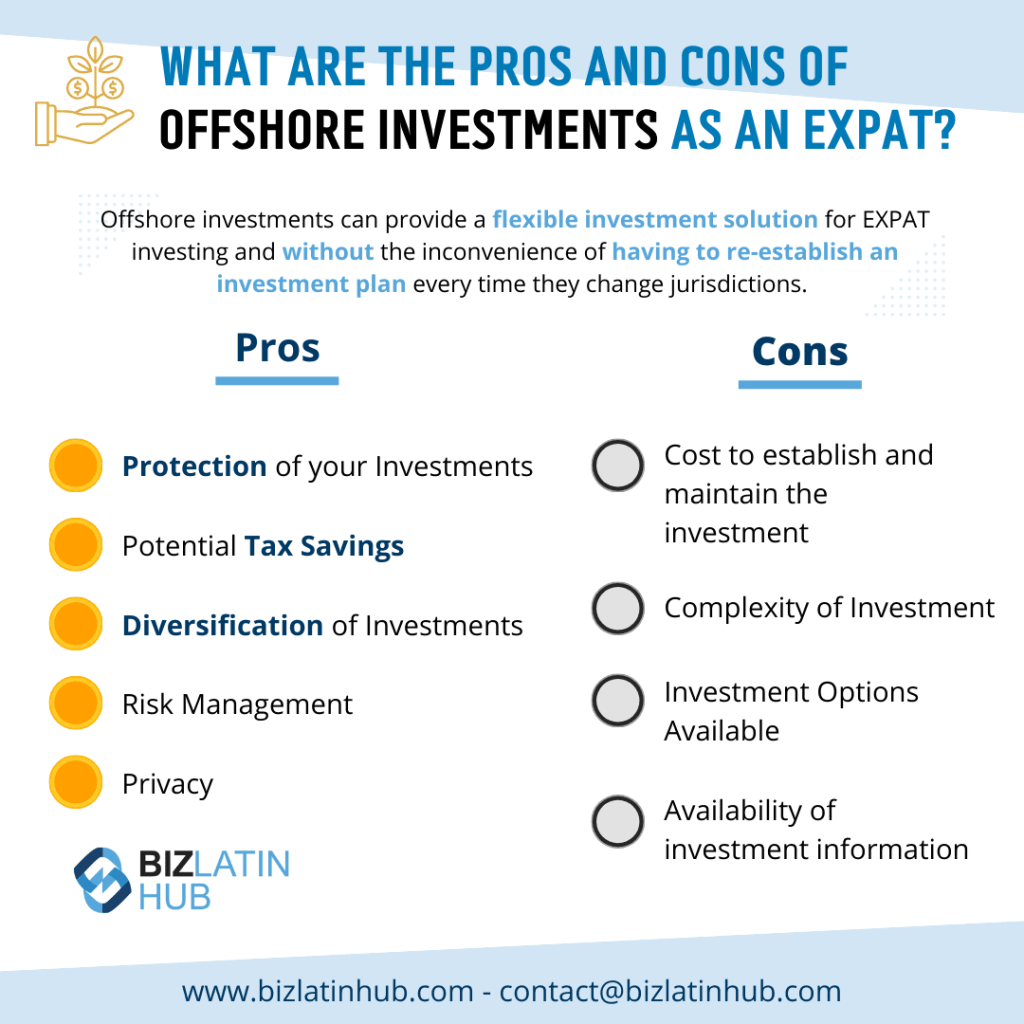Just How Offshore Investment Can Give Greater Financial Flexibility and Flexibility
Just How Offshore Investment Can Give Greater Financial Flexibility and Flexibility
Blog Article
The Necessary Guide to Offshore Investment: Kinds and Their Advantages
Offshore financial investment presents a compelling selection of options, each tailored to meet certain monetary goals and risk cravings. From the personal privacy managed by offshore bank accounts to the security of real estate holdings, the landscape is abundant with possibilities for both property protection and growth.
Offshore Financial Institution Accounts
Offshore savings account have actually ended up being increasingly popular among financiers seeking to expand their monetary profiles and safeguard their possessions. These accounts are generally established in territories outside the capitalist's home nation, offering different benefits that can enhance financial safety and privacy.
One primary advantage of offshore financial institution accounts is asset defense. By putting funds in an international organization, capitalists can protect their possessions from possible political or economic instability in their home nation. Additionally, overseas banking typically offers greater confidentiality, allowing people to manage their wealth without bring in undesirable attention.
Moreover, overseas checking account may provide favorable tax advantages, relying on the jurisdiction. While it is crucial to abide by tax obligation laws in one's home nation, certain overseas locations provide tax incentives to international investors, which can bring about increased returns on investments.
Additionally, these accounts often give accessibility to global monetary markets, enabling capitalists to check out diverse financial investment possibilities that might not be available domestically. Generally, offshore savings account serve as a critical device for property security, privacy, and monetary growth in a progressively globalized economic situation.
Property Investments
The appeal of real estate investments remains to grow amongst people seeking to expand their profiles and safe lasting monetary gains. Offshore realty offers unique advantages, such as desirable tax routines, asset protection, and the possibility for resources recognition. Investors can utilize residential or commercial properties in emerging markets or steady economic climates, allowing accessibility to a broader variety of investment possibilities.
One trick advantage of offshore property is the capacity to safeguard assets from residential economic changes or political instability. Residential property ownership in an international jurisdiction can supply a layer of security and privacy, typically interesting high-net-worth individuals. Additionally, buying rental residential properties can produce regular income streams, enhancing total economic stability.

Shared Funds and ETFs
Purchasing exchange-traded funds and common funds (ETFs) offers an accessible opportunity for people looking to diversify their financial investment profiles while reducing dangers connected with direct stock purchases. Both financial investment cars permit investors to merge their resources, allowing them to spend in a more comprehensive variety of assets than they could handle separately.
Common funds are usually handled by specialist fund supervisors who actively pick safeties based on the fund's financial investment purpose. Offshore Investment. This administration can enhance the capacity for returns, though it often includes greater fees. On the other hand, ETFs are typically passively managed and track a certain index, providing lower expense ratios and higher openness. They can be traded throughout the day on stock market, adding adaptability for financiers.

Both shared funds and ETFs offer tax benefits in an offshore context. Common funds and ETFs serve as reliable devices for building wealth while navigating the intricacies of overseas investment opportunities.
Offshore Trust Funds
For capitalists looking for to better boost their possession defense and estate planning strategies, offshore depends on present a compelling option. These lawful entities allow people to move assets to a trust in a territory outside their home nation, providing a range of benefits that can protect wide range and help with smooth succession preparation.
Among the primary benefits of offshore trusts is website here the degree of privacy they provide. By positioning properties in an offshore trust, capitalists can secure their riches from public scrutiny, consequently shielding their privacy. Additionally, offshore depends on can offer durable defense against possible financial institutions and lawful cases, efficiently insulating assets from dangers related to litigation or personal bankruptcy.
Offshore counts on additionally make it possible for flexible estate planning alternatives. Investors can designate particular recipients and describe the regards to property distribution, guaranteeing that their wishes are honored after their passing. This can be specifically valuable for individuals with facility family characteristics or those desiring to offer future generations.
Furthermore, several overseas jurisdictions have actually established desirable lawful structures created to support the establishment and administration of trusts, making them an appealing choice for critical financiers. On the whole, offshore trusts function as a tactical tool for those seeking to enhance their financial tradition while mitigating potential dangers.
Tax Obligation Advantages and Factors To Consider
While several capitalists are drawn to offshore counts on mostly for property protection and estate planning, substantial tax benefits and factors to consider also warrant attention. Offshore financial investment lorries can supply positive tax routines, which might result in lower tax obligation responsibilities contrasted to onshore options. Numerous visit territories offer tax motivations such as tax obligation deferments, reduced capital gains rates, or even full tax exemptions on certain types of earnings.
Nevertheless, it is important to navigate the facility landscape of worldwide tax laws. The Foreign Account Tax Conformity Act (FATCA) and top article various other regulations need U.S (Offshore Investment). people and residents to report international assets, potentially causing fines for non-compliance. Additionally, the Irs (INTERNAL REVENUE SERVICE) might impose tax obligations on overseas revenue, negating some advantages if not properly managed

Verdict
In conclusion, offshore investment choices existing diverse chances for property security, estate, and diversity preparation. Offshore bank accounts improve personal privacy, while real estate investments give stability against domestic unpredictabilities.
Offshore actual estate provides special benefits, such as positive tax obligation regimes, possession security, and the possibility for funding gratitude.While numerous financiers are attracted to offshore trust funds largely for possession defense and estate preparation, significant tax benefits and considerations also merit interest. Offshore investment automobiles can use desirable tax obligation regimes, which may result in lower tax obligations contrasted to onshore alternatives.Capitalists need to also take into consideration the impact of regional tax obligation laws in the offshore jurisdiction, as these can vary dramatically. Ultimately, while offshore financial investments can generate substantial tax benefits, extensive due persistance and strategic planning are critical to maximize their potential.
Report this page